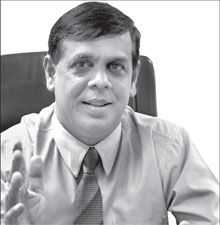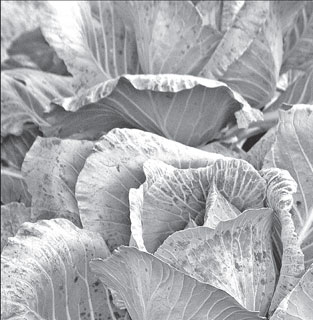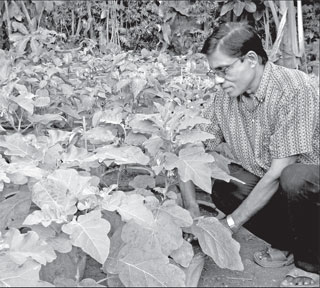Divineguma as a way of life – Director, Divineguma Jayatilleke
Herath
Part 1:
 A
prosperous village with healthy and economically empowered families’ is
the vision of the Divineguma National Programme. In Mahinda Chinthanaya
– Vision for the Future, President Mahinda Rajapaksa stated that he will
establish resourceful and prosperous villages by 2016 through social and
livelihood development. In his budget speech, President Rajapaksa stated
that our society should be prepared to face the potential global food
shortage in the near future. A
prosperous village with healthy and economically empowered families’ is
the vision of the Divineguma National Programme. In Mahinda Chinthanaya
– Vision for the Future, President Mahinda Rajapaksa stated that he will
establish resourceful and prosperous villages by 2016 through social and
livelihood development. In his budget speech, President Rajapaksa stated
that our society should be prepared to face the potential global food
shortage in the near future.
|

Divineguma National Programme Director Jayatilleke Herath |
Proper food supply can be ensured through animal husbandry, poultry
farming, vegetable and food cultivation. All of these can be done within
the household by using low cost organic fertilizer and inputs.
Therefore, he proposed a National Food Production Programme through
establishment of one million household economic units with the help of
Department of Agriculture and Samurdhi Programme, Divineguma National
Programme Director Jayatilleke Herath said.
In an interview with the Daily News Herath said the mission of the
Divineguma National Programme is establishing 2.5 million household
economic units covering all villages, including sectors like home
gardens, animal husbandry and cottage industries. Earlier, it was
planned to establish one million household economic units but after
observing the strong positive feedback and public enthusiasm, the
Economic Development Minister Basil Rajapaksa decided to increase this
figure to 1.5 million.
Household economic unit
This programme has given an excellent message to the Sri Lankan
public. That is if we were able to defeat the most ruthless terror
outfit in the world, now, we have a more powerful and much bigger force
to defeat - poverty.
Household economic units need to be established, because the
unhealthy aspects of lifestyle which penetrated into the country through
the open economy introduced in 1977. It had a negative impact on the
health and nutrition of the people of Sri Lanka. There was a drastic
negative change in the food and consumption habits of family units due
to the transformation in the country’s social, economic and cultural
structures, which occurred during the last few decades. Child
malnutrition went up rapidly as a result of these changes.
He also pointed out that in the past, food items, such as, leafy
vegetables, yams, root crops, cereals, medicines and small scale cottage
industries were there in the household economic unit based on the
materials obtained from the home garden and its vicinity.
|
 
Grow vegetables in your garden |
Livestock had an important place in the household since ancient
times. Eggs and dairy milk were produced with low cost and the
fertilizer requirement for cultivation was also met. Economic and
nutritional problems have intensified due to non use of family labour
and resources obtained from the vicinity of the household. The Cost of
Living has increased due to people purchasing food items from the market
at higher prices, when these items could be grown in one’s home gardens.
Explaining the objectives of Divineguma National Programme, he said
the main purpose of Divineguma is to get the family unit involved
creating a healthy and nutritious household economic unit by making best
use of the available opportunities and potential. Divineguma will be
implemented under three main sectors.
They are agriculture, fisheries and animal husbandry and cottage
industry. There are four specific objectives of the programme. They are
improving the nutrition level of the family, reducing the daily cost of
living of the family, ensuring family food security and creating an
additional source of income for the family.
On the other hand, people throughout the country experienced a
massive development drive after the end of the humanitarian operation.
Giant development projects, such as, expressways, power generating
projects, airports, harbours etc are being constructed in the country.
But people did not feel the real impact of development because these
major development projects improved the country’s infrastructure
facilities and not the day-to-day life requirements of the people. This
is where the Divineguma came into play by addressing the people’s daily
needs, while making a significant contribution towards the National
economy. The Divineguma programme has won the hearts and minds of the
people, hence, it is welcomed with open arms. The people recognise the
fact that Divineguma is a boon to their well being.
National economy
In the past we had many poverty alleviation programmes such as rice
coupon (ration), Janasaviya, Samurdhi, etc. They were not failures, but
could be described as social welfare programmes. But, do we need to walk
the same path forever? Can we do it? In 2002, the poverty index of the
country was 22.7 per cent. Today it is only 8.9 per cent. But on the
other hand, under-weight child births have increased up to 16 per cent.
Over 20 per cent of school children suffer from malnutrition. This is
the contradiction. This could not have happened if these poverty
alleviation programmes were a success. This is the result of negative
changes of lifestyle. But Divineguma put a stop to this trend, he
pointed out.
Presenting statistics, he explained that in 2011 Rs. 173,277 million
(1567m USD) were spent on importing food. In 2010, we spent Rs. 29,214
million for importing milk powder. This figure exceeded Rs. 38,000
million by 2011. We spent Rs.9,475 million to import onions in 2011.
Another Rs.16,276 million was spent on importing canned fish. We can
save all this money through Divineguma programme.
|

Bee keeping, as a self employment project |
The importance of the Divineguma National programme is its
contribution towards the national economy. Every single household
economic unit makes a significant contribution towards the country’s
economy. There are short term and long term benefits of this programme.
In March 2011, when the price of vegetables increased significantly, the
innovative Divineguma programme was able to bring down the prices within
three months. Over 100,000 acres of coconut has been cultivated under
this programme during the last one and half years.
The people’s purchasing power increased within a very short time.
Another reason which could be attributed for this drastic price
reduction is the flow of additional vegetable stocks into the market,
cultivated in home gardens, he said.
The dairy farming sector faced many challenges posed by the private
sector and certain elements with vested interests during the successful
implementation of Divineguma. Multinational companies promoted
misconceptions in the minds of the public on drinking fresh milk and
discouraged people from consuming fresh milk. That is how our
traditional milk man stopped coming to our homes every morning. At the
moment there is an unbelievable demand for various varieties of grass.
Poverty alleviation is not only feeding poor people forever. If we
take a single village, there are many state officials attached to the
Divisional Secretariat. We can make these sections active and of more
service to the people. Poverty alleviation is not restricted to the
Economic Development Ministry.
Over 21 line Ministries are connected with Divi negma. All ministries
in the agriculture sector, coconut industry, export, indigenous
medicine, etc are involved in the programme, he added. |







